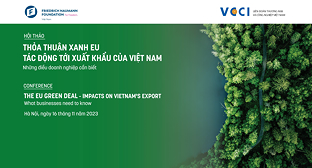America's global trade war has finally arrived at the WTO.
31/10/2018 12:00

Seven countries -- including Mexico, Canada and the European Union -- are disputing U.S. tariffs on foreign steel and aluminum at a meeting of the World Trade Organization in Geneva on Monday. China is asking the international trade body to review the tariffs on roughly half its exports to the United States. The U.S. is fighting back with complaints about Chinese counter-tariffs.
Rarely has the WTO faced so many disputes about a handful of actions, experts say. But President Donald Trump's pursuit of protectionist trade policies has stoked nationalism around the globe. His disregard for international rules of the road has forced other countries to sidestep the system as well. And the WTO is struggling to keep up with the changing tides.
"The Trump administration has significantly increased their workload," said Matt Gold, a law professor at Fordham University and a top trade official under President Barack Obama. "The United States has brought the whole system to a halt."
Monday's closed-door meeting of the WTO's dispute settlement body was the first time countries were collectively able to confront each other and air their grievances over the Trump tariffs. Statements released afterward suggested the discussion got heated.
"This collective resort to dispute settlement reflects the serious concern of the WTO Membership over the United States' actions," Norway said in a statement.
The U.S. defended its stance, saying it "had no choice," according to meeting documents. "Issues of national security are political in nature and are not matters appropriate for adjudication in the WTO dispute settlement system."
The WTO was born from the desire for more free and open borders following World War II. Members agreed to abide by international standards of trade, and the organization provided a way for countries to resolve disputes. Typically, that involves registering a complaint with the WTO before imposing tariffs on another member. The WTO then reviews the dispute and decides whether action is justified.
But that process can take years, and lately, the organization has grappled with a backlog of cases and a staffing shortage. Trump did not consult the WTO before announcing the 25 percent tariff on foreign steel and 10 percent tariff on aluminum in May, arguing the measures are critical to national security. Countries that got hit swiftly imposed tariffs of their own on U.S. goods, also before receiving WTO approval.
"Some Members have expressed concerns that invoking the national security exception would undermine the international trading system. This is erroneous, and completely backwards," the United States said in a statement. "What threatens the international trading system is that China is attempting to use the WTO dispute settlement system to prevent any action by any Member to address its unfair, trade-distorting policies."
The United States followed a similar playbook when it imposed tariffs on a broad swath of Chinese imports, citing the country's violation of intellectual property laws. China retaliated before the WTO could weigh in.
"It's getting kind of messy," said Robert McDougall, a senior fellow at the Centre for International Governance Innovation and a former Canadian delegate to the trade body. The WTO "is under stress, and its relevance is challenged. It administers rules that are out of date."
Broken system
Experts say the moves have exposed how broken the system has become. The disputes on Monday's docket will be a critical test of whether the WTO still has teeth. The review is expected to take roughly two years. An appeal could throw the complaints into limbo even longer, especially since the United States has blocked the approval of WTO officials to hear those appeals.
Some fear Monday's meeting could end up backfiring, leading not to resolution but to inflamed tensions. The United States appears to have made little progress in direct negotiations over the steel and aluminum tariffs, for example. Canada and Mexico had hoped to reach an agreement before signing a new trilateral trade agreement next month. But so far, talks do not appear to have gotten off the ground.
"The worry is that after the meeting there may be a flood of new protectionist measures and it could trigger a reaction, depending on how the discussions go," said Anahita Thoms, a partner at the law firm Baker & McKenzie who specializes in trade.
Top trade officials from 13 WTO countries convened in Canada last week to reaffirm their commitment to the institution and discuss ways to modernize it. The United States was not invited, and the group issued an oblique critique of the Trump administration.
"We are deeply concerned by recent developments in international trade, particularly the rise in protectionism, which negatively affect the WTO and put the entire multilateral trading system at risk," the statement said.
Fixing the WTO would require a long-term commitment, and America's trading partners remain uncertain about the administration's end-game, Gold said. Heightened political tensions and the upcoming election are clouding the outlook as well. Trump has repeatedly threatened to withdraw from the trade body, both on the campaign trail and in the White House.
"It's much more about theater for the U.S. midterms right now than it is about solving problems," Gold said.
Rarely has the WTO faced so many disputes about a handful of actions, experts say. But President Donald Trump's pursuit of protectionist trade policies has stoked nationalism around the globe. His disregard for international rules of the road has forced other countries to sidestep the system as well. And the WTO is struggling to keep up with the changing tides.
"The Trump administration has significantly increased their workload," said Matt Gold, a law professor at Fordham University and a top trade official under President Barack Obama. "The United States has brought the whole system to a halt."
Monday's closed-door meeting of the WTO's dispute settlement body was the first time countries were collectively able to confront each other and air their grievances over the Trump tariffs. Statements released afterward suggested the discussion got heated.
"This collective resort to dispute settlement reflects the serious concern of the WTO Membership over the United States' actions," Norway said in a statement.
The U.S. defended its stance, saying it "had no choice," according to meeting documents. "Issues of national security are political in nature and are not matters appropriate for adjudication in the WTO dispute settlement system."
The WTO was born from the desire for more free and open borders following World War II. Members agreed to abide by international standards of trade, and the organization provided a way for countries to resolve disputes. Typically, that involves registering a complaint with the WTO before imposing tariffs on another member. The WTO then reviews the dispute and decides whether action is justified.
But that process can take years, and lately, the organization has grappled with a backlog of cases and a staffing shortage. Trump did not consult the WTO before announcing the 25 percent tariff on foreign steel and 10 percent tariff on aluminum in May, arguing the measures are critical to national security. Countries that got hit swiftly imposed tariffs of their own on U.S. goods, also before receiving WTO approval.
"Some Members have expressed concerns that invoking the national security exception would undermine the international trading system. This is erroneous, and completely backwards," the United States said in a statement. "What threatens the international trading system is that China is attempting to use the WTO dispute settlement system to prevent any action by any Member to address its unfair, trade-distorting policies."
The United States followed a similar playbook when it imposed tariffs on a broad swath of Chinese imports, citing the country's violation of intellectual property laws. China retaliated before the WTO could weigh in.
"It's getting kind of messy," said Robert McDougall, a senior fellow at the Centre for International Governance Innovation and a former Canadian delegate to the trade body. The WTO "is under stress, and its relevance is challenged. It administers rules that are out of date."
Broken system
Experts say the moves have exposed how broken the system has become. The disputes on Monday's docket will be a critical test of whether the WTO still has teeth. The review is expected to take roughly two years. An appeal could throw the complaints into limbo even longer, especially since the United States has blocked the approval of WTO officials to hear those appeals.
Some fear Monday's meeting could end up backfiring, leading not to resolution but to inflamed tensions. The United States appears to have made little progress in direct negotiations over the steel and aluminum tariffs, for example. Canada and Mexico had hoped to reach an agreement before signing a new trilateral trade agreement next month. But so far, talks do not appear to have gotten off the ground.
"The worry is that after the meeting there may be a flood of new protectionist measures and it could trigger a reaction, depending on how the discussions go," said Anahita Thoms, a partner at the law firm Baker & McKenzie who specializes in trade.
Top trade officials from 13 WTO countries convened in Canada last week to reaffirm their commitment to the institution and discuss ways to modernize it. The United States was not invited, and the group issued an oblique critique of the Trump administration.
"We are deeply concerned by recent developments in international trade, particularly the rise in protectionism, which negatively affect the WTO and put the entire multilateral trading system at risk," the statement said.
Fixing the WTO would require a long-term commitment, and America's trading partners remain uncertain about the administration's end-game, Gold said. Heightened political tensions and the upcoming election are clouding the outlook as well. Trump has repeatedly threatened to withdraw from the trade body, both on the campaign trail and in the White House.
"It's much more about theater for the U.S. midterms right now than it is about solving problems," Gold said.
October 31, 2018
Source: CNBC
Source: CNBC
Các tin khác
- Shrimp exports to major markets bounce back (22/04/2024)
- Vietnam becomes biggest rice supplier for Singapore (22/04/2024)
- Vietnam proposes removal of quota on shrimp export to RoK (22/04/2024)
- Early warnings reduce risks in trade defense (22/04/2024)
- Rubber exports are flourishing, promising potential (22/04/2024)
 Home
Home
 About Us
About Us




















